Recombinant Human Eukaryotic translation initiation factor 1A, X-chromosomal (EIF1AX)
In Stock-
中文名称:人EIF1AX重组蛋白
-
货号:CSB-EP007506HU
-
规格:¥1536
-
图片:
-
其他:
产品详情
-
纯度:Greater than 95% as determined by SDS-PAGE.
-
生物活性:Not Test
-
基因名:
-
Uniprot No.:
-
别名:eIF-1A X isoform;Eukaryotic translation initiation factor 4C;eIF-4C
-
种属:Homo sapiens (Human)
-
蛋白长度:Full Length
-
来源:E.coli
-
分子量:23.4 kDa
-
表达区域:1-144aa
-
氨基酸序列MPKNKGKGGKNRRRGKNENESEKRELVFKEDGQEYAQVIKMLGNGRLEAMCFDGVKRLCHIRGKLRKKVWINTSDIILVGLRDYQDNKADVILKYNADEARSLKAYGELPEHAKINETDTFGPGDDDEIQFDDIGDDDEDIDDI
Note: The complete sequence including tag sequence, target protein sequence and linker sequence could be provided upon request. -
蛋白标签:C-terminal 6xHis-tagged
-
产品提供形式:Liquid or Lyophilized powder
Note: We will preferentially ship the format that we have in stock, however, if you have any special requirement for the format, please remark your requirement when placing the order, we will prepare according to your demand. -
缓冲液:If the delivery form is liquid, the default storage buffer is Tris/PBS-based buffer, 5%-50% glycerol. If the delivery form is lyophilized powder, the buffer before lyophilization is Tris/PBS-based buffer, 6% Trehalose.
-
复溶:We recommend that this vial be briefly centrifuged prior to opening to bring the contents to the bottom. Please reconstitute protein in deionized sterile water to a concentration of 0.1-1.0 mg/mL.We recommend to add 5-50% of glycerol (final concentration) and aliquot for long-term storage at -20℃/-80℃. Our default final concentration of glycerol is 50%. Customers could use it as reference.
-
储存条件:Store at -20°C/-80°C upon receipt, aliquoting is necessary for mutiple use. Avoid repeated freeze-thaw cycles.
-
保质期:The shelf life is related to many factors, storage state, buffer ingredients, storage temperature and the stability of the protein itself.
Generally, the shelf life of liquid form is 6 months at -20°C/-80°C. The shelf life of lyophilized form is 12 months at -20°C/-80°C. -
货期:3-7 business days
-
Datasheet & COA:Please contact us to get it.
相关产品
靶点详情
-
功能:Seems to be required for maximal rate of protein biosynthesis. Enhances ribosome dissociation into subunits and stabilizes the binding of the initiator Met-tRNA(I) to 40 S ribosomal subunits.
-
基因功能参考文献:
- Its mutation is found in patients with meningeal melanocytic tumor. PMID: 29476293
- Study identified a new RNA-induced silencing complex component, eIF1A, which directly interacts with the MID-domain of Ago2 and functions in DICER-independent miRNA biogenesis and miRNA-mediated RNA interference. PMID: 29236257
- EIF1AX alterations occurred infrequently in low-grade gliomas (1.4%), uterus endometrial carcinoma (1.25%), thyroid carcinoma (1%), and lung adenocarcinoma (0.4%). PMID: 27089234
- In this report we show that patients with uveal melanoma harbor mutation-specific chromosomal patterns in the tumor. These chromosomal patterns are characterized by different types of chromosomal anomalies, thus illustrating that distinct biological mechanisms underlie uveal melanoma pathogenesis. PMID: 27916271
- Coexpression of mutant NRAS and EIF1AX proteins promoted proliferation and clonogenic survival in LGSC cells, providing the first example of co-occurring, growth-promoting mutational events in ovarian cancer. PMID: 28646021
- Short 5'UTR mRNAs are enriched with TISU (translation initiator of short 5'UTR), a 12-nucleotide element directing efficient scanning-independent translation. This study demonstrate that TISU is particularly dependent on eukaryotic initiation factor 1A (eIF1A) which interacts with both RPS3 and RPS10e. PMID: 28584194
- Mutation in EIF1AX gene is associated with Uveal Melanoma. PMID: 28810145
- we find iris melanomas to be related genetically to choroidal and ciliary body melanomas, frequently harboring GNAQ, GNA11, and EIF1AX mutations. PMID: 28700778
- results indicate that the interactions between eIF1A and eIF5B are being continuously rearranged during translation initiation; presentation of a model how the dynamic eIF1A/eIF5B interaction network can promote remodeling of the translation initiation complexes, and the roles in the process played by intrinsically disordered protein segments PMID: 27325746
- Patients with uveal melanoma can be classified into 3 groups, of which EIF1AX-mutated tumors and tumors without BAP1, SF3B1, or EIF1AX mutations are associated with prolonged survival and low metastatic risk, SF3B1-mutated tumors are associated with late metastasis PMID: 26923342
- BAP1, SF3B1, and EIF1AX mutations occur during uveal melanoma tumor progression in an almost mutually exclusive manner and are associated with different levels of metastatic risk. PMID: 27123562
- We report here the occurrence of EIF1AX mutations not only in thyroid cancer, but also in benign thyroid nodules, and demonstrate that phenotypically these mutations are associated with the encapsulated follicular variant of papillary thyroid carcinoma and benign follicular-pattern nodules. PMID: 26911375
- The finding of this study suggested that an SF3B1 or EIF1AX mutation is present in a substantial subset of primary LMNs underscores that these tumors genetically resemble uveal melanoma and are different from cutaneous melanoma at the genetic level. PMID: 26769193
- The effect of an EIF1AX mutation is estimated to be a decreased odds of metastasis in uveal melanoma. PMID: 24970262
- the newly identified driver mutations in EIF1AX and SF3B1, specifically found in uveal melanomas with disomy 3, confirm and extend the established classification model of uveal melanoma. PMID: 23793026
- Coordinated movements of eukaryotic translation initiation factors eIF1, eIF1A, and eIF5 trigger phosphate release from eIF2 in response to start codon recognition by the ribosomal preinitiation complex PMID: 23293029
- eIF3j/HCR1 closely cooperates with the eIF3b/PRT1 RNA recognition motif and eIF1A on the ribosome to ensure proper formation of the scanning-arrested conformation required for stringent AUG recognition PMID: 20060839
- Remarkable conservation of translation initiation factors: IF1/eIF1A and IF2/eIF5B are universally distributed phylogenetic markers. PMID: 11699879
- Exp5 exports eEF1A via tRNA from nuclei and synergizes with other transport pathways to confine translation to the cytoplasm. PMID: 12426392
- determination of binding site on eukaryotic initiation factor 5B PMID: 12569173
- The efficiency of the EF-1alpha promoter was higher than that of the cytomegalovirus promoter in all embryonic stem cells trnasfected. PMID: 17784828
显示更多
收起更多
-
蛋白家族:EIF-1A family
-
数据库链接:
Most popular with customers
-
Recombinant Rabbit Tissue factor pathway inhibitor (TFPI) (Active)
Express system: Mammalian cell
Species: Oryctolagus cuniculus (Rabbit)
-
Recombinant Human C-X-C chemokine receptor type 4 (CXCR4)-VLPs (Active)
Express system: Mammalian cell
Species: Homo sapiens (Human)
-
Recombinant Human Epithelial discoidin domain-containing receptor 1 (DDR1), partial (Active)
Express system: Mammalian cell
Species: Homo sapiens (Human)
-
Recombinant Macaca fascicularis CD44 antigen (CD44), partial (Active)
Express system: Mammalian cell
Species: Macaca fascicularis (Crab-eating macaque) (Cynomolgus monkey)
-
Recombinant Human Microtubule-associated protein tau (MAPT) (Active)
Express system: Mammalian cell
Species: Homo sapiens (Human)
-
Recombinant Human Complement component C1q receptor (CD93), partial (Active)
Express system: Mammalian cell
Species: Homo sapiens (Human)
-
Recombinant Macaca fascicularis Trophoblast glycoprotein (TPBG), partial (Active)
Express system: Mammalian cell
Species: Macaca fascicularis (Crab-eating macaque) (Cynomolgus monkey)
-
Recombinant Human Claudin-6 (CLDN6)-VLPs, Fluorescent (Active)
Express system: Mammalian cell
Species: Homo sapiens (Human)



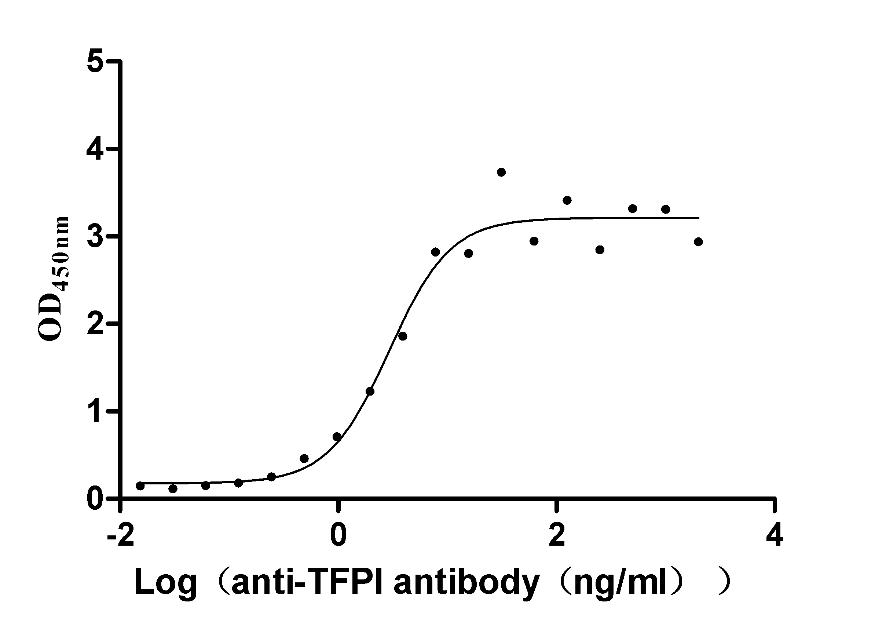
-AC1.jpg)
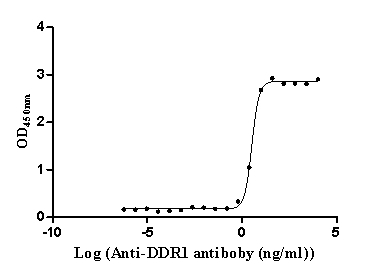
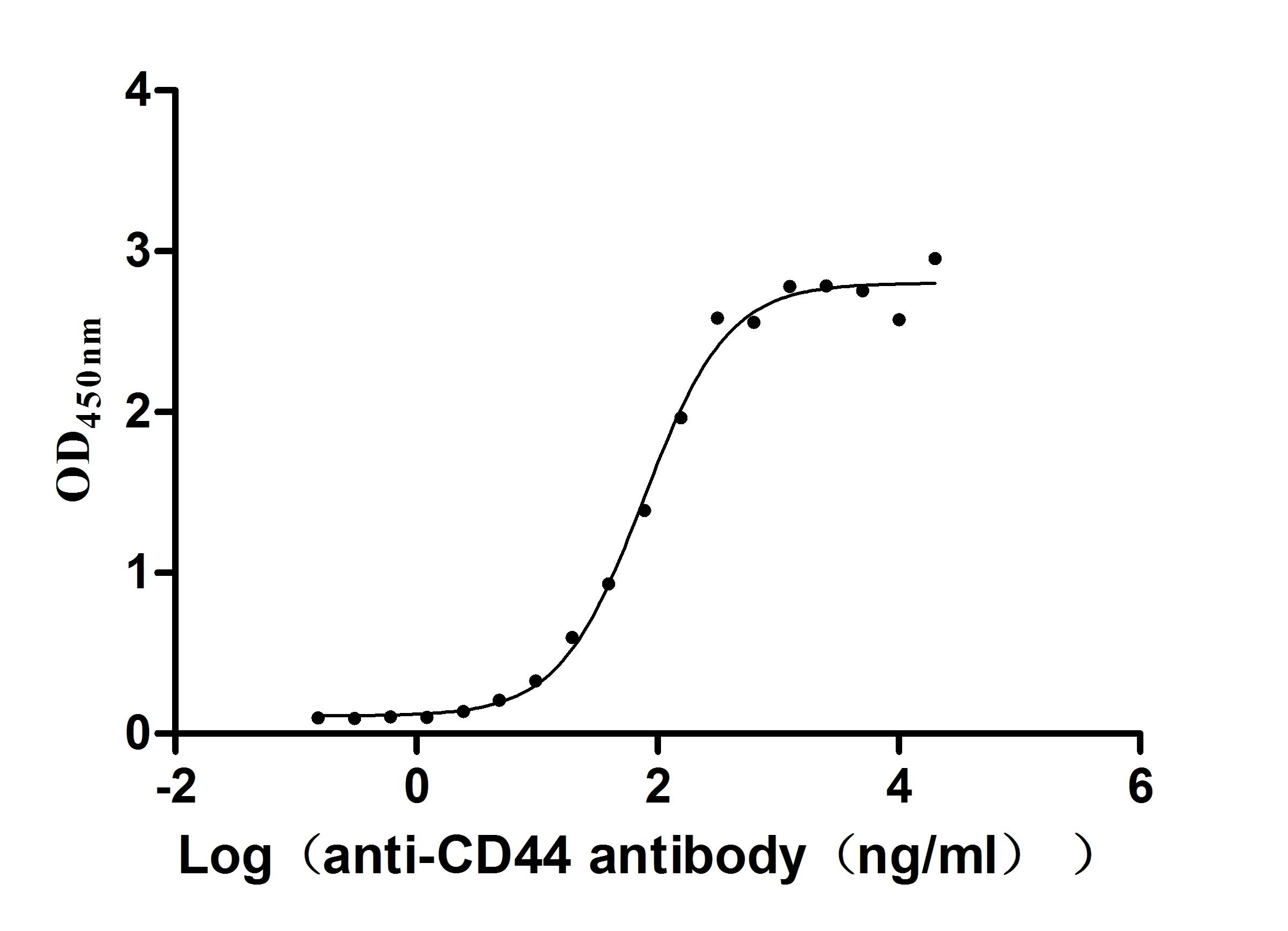
-AC1.jpg)
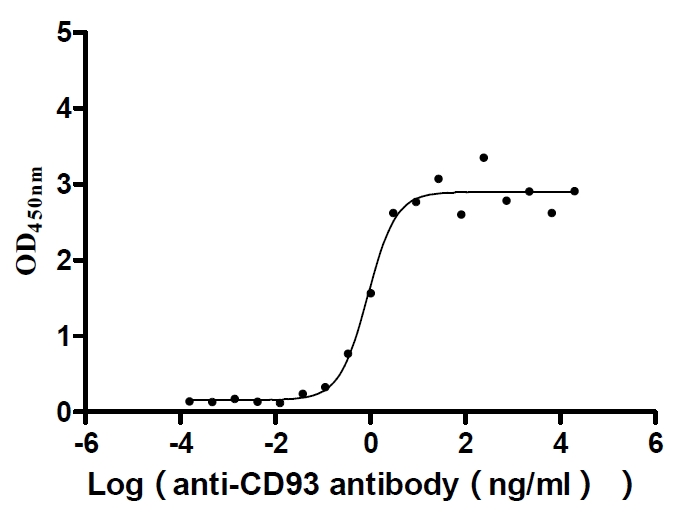
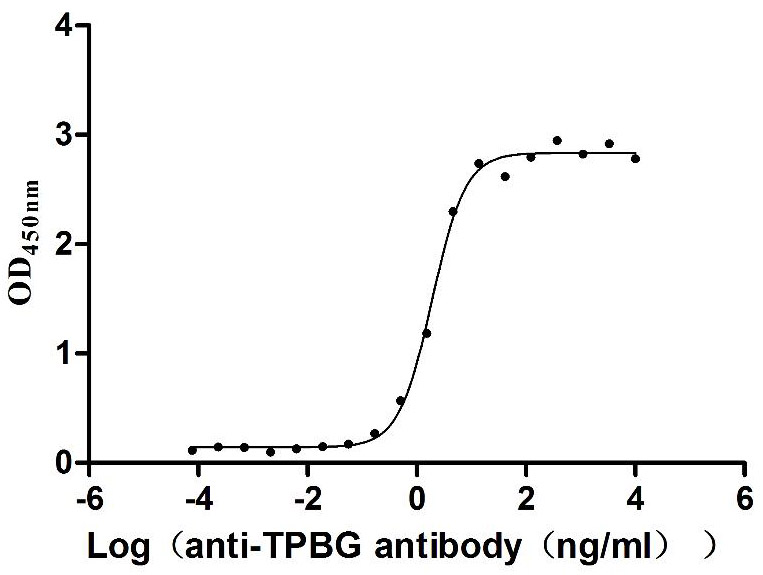
f4-AC1.jpg)









